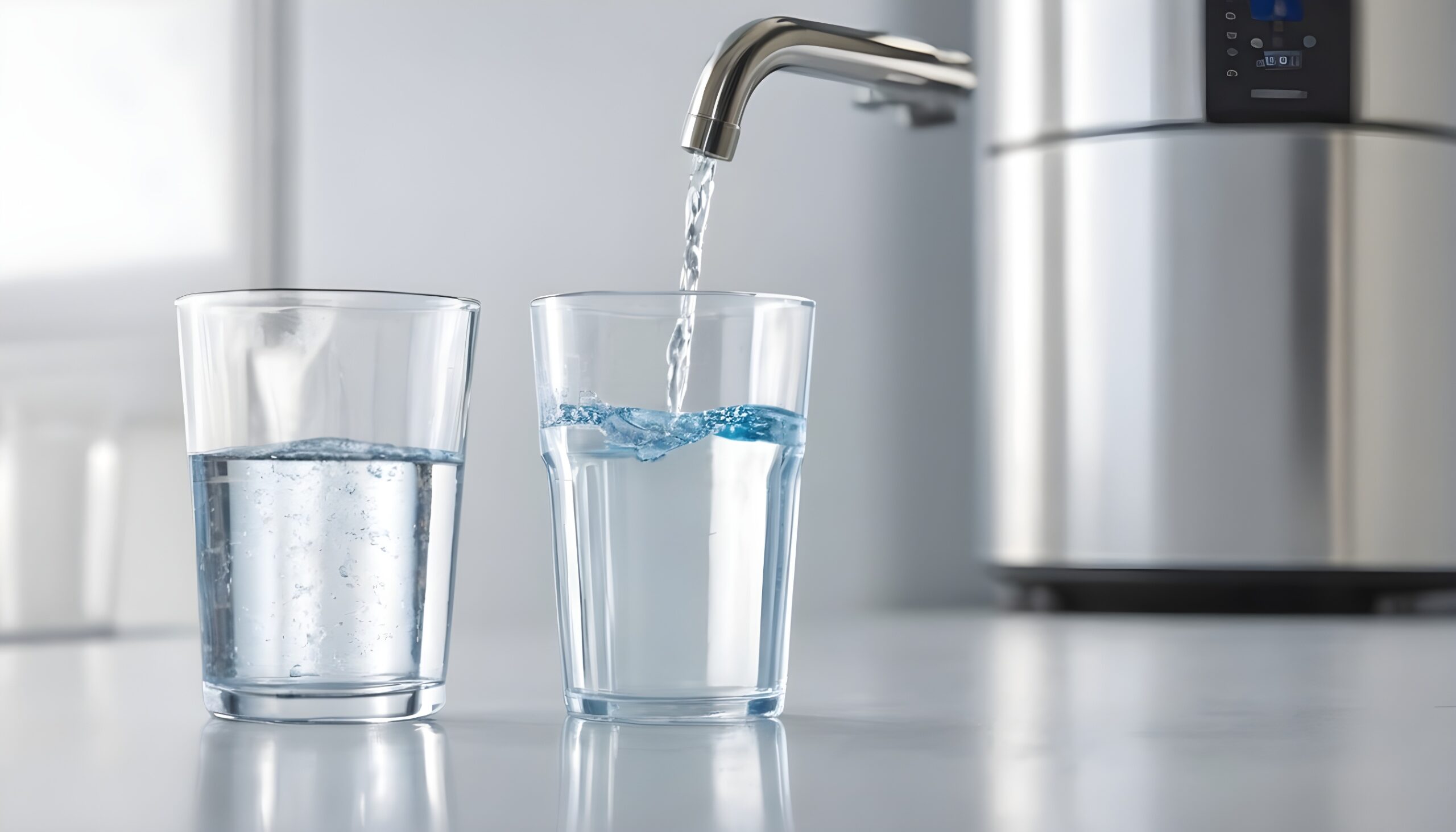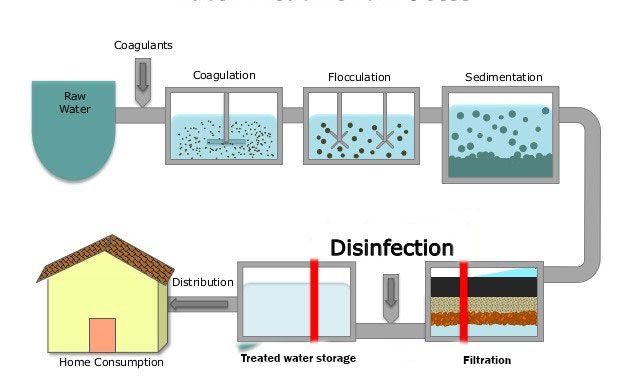Why a Water Purification System Is Necessary for Clean, Safe Water
Accessibility to tidy, safe water is a basic human right and a cornerstone of public health and wellness. The visibility of hazardous impurities such as pathogens, hefty steels, and chemical pollutants in our water supply raises serious concerns concerning wellness and well-being. A water purification system stands as a critical option to reduce these risks, ensuring that areas and people can access risk-free drinking water. Understanding the details of these systems and their different approaches is crucial, specifically as we consider the effects for health and wellness outcomes and environmental sustainability in our lives.
Significance of Tidy Water
Access to tidy water is an essential need for human wellness and well-being. Contaminated water can lead to significant health issues, including stomach health problems, cholera, and dysentery, particularly in susceptible populations such as children and the senior.
Additionally, tidy water is essential for sanitation and hygiene methods, which are essential in avoiding the spread of transmittable diseases. Adequate water supply supports correct cleanliness centers, promoting a much healthier atmosphere. Additionally, access to secure water affects socioeconomic factors, as it allows neighborhoods to participate in farming and commercial activities, inevitably adding to financial development.
In numerous areas, the lack of tidy water worsens destitution and inequality, additional impeding progression towards sustainable development objectives. Ensuring accessibility to clean water is not only a public health and wellness necessary yet also a keystone for social equity and financial development. Initiatives to boost water high quality and facilities have significant advantages, fostering healthier communities and boosting lifestyle.

Common Contaminants in Water
Making sure the schedule of clean water is weakened by various contaminants that can endanger its safety and top quality. The presence of virus, such as bloodsuckers, bacteria, and infections, presents significant health and wellness threats, especially in locations lacking sufficient cleanliness. These microbes can lead to waterborne conditions, leading to severe disease or perhaps fatality.
Chemical contaminants additionally offer an essential worry. Heavy steels, consisting of mercury, lead, and arsenic, usually go into water materials through commercial discharges or rusty plumbing. These substances can collect in the body gradually, causing long-term wellness concerns such as neurological damages and developing problems.
Additionally, agricultural runoff introduces chemicals and plant foods into water supply, which can disrupt communities and adversely impact human health. Nitrates, typically located in plant foods, can cause significant conditions like methemoglobinemia, specifically in infants.
Benefits of Water Purification Solutions
Identifying the vital demand for secure drinking water, water filtration systems use a myriad of advantages that boost public wellness and environmental sustainability. Mainly, these systems effectively eliminate damaging pollutants, consisting of bacteria, infections, hefty steels, and chemicals, guaranteeing that the water taken in is devoid of contaminants and virus. This decrease in impurities significantly reduces the risk of waterborne conditions, advertising total neighborhood health and wellness.
In enhancement to health benefits, water filtration systems add to environmental sustainability by lowering dependence on bottled water, which commonly generates too much plastic waste. By using a purification system, houses can decrease their carbon footprint and add to a more sustainable community. These systems can enhance the preference and smell of water, making it more tasty for daily consumption.

Different Sorts Of Filtration Techniques

One typical approach is reverse osmosis, which uses a semi-permeable membrane layer to separate water from liquified solids and impurities. This process efficiently lowers contaminations, consisting of hefty steels and look at more info chemicals. One more commonly used strategy is ultraviolet (UV) disinfection, which employs UV light to counteract microorganisms and infections, making them safe without the use of chemicals.
Turned on carbon purification is another preferred technique, utilizing carbon to adsorb organic substances, chlorine, and undesirable odors, improving taste and odor quality. Purification, a procedure that entails boiling water and condensing the steam, efficiently eliminates minerals and impurities yet might need even more power compared to other approaches.
Ion exchange is usually utilized to soften water by replacing calcium and magnesium ions with salt or potassium ions. Each technique has its benefits and restrictions, making it vital to comprehend their performances and effectiveness in addressing specific water quality issues - Water Purification System. Inevitably, selecting the suitable purification method is vital for guaranteeing clean and secure alcohol consumption water
Selecting the Right System
Picking a proper water filtration system calls for careful consideration of various elements, including the details impurities existing in the water supply, the volume of water required, and the preferred purification method. Initially, it is essential to conduct a water quality examination to recognize pollutants such as germs, hefty metals, or chemical pollutants. This info will lead you in selecting a system that efficiently targets those details pollutants.
Following, evaluate your family's daily water consumption to establish the system's ability. Solutions are available in different sizes, from point-of-use filters for alcohol consumption water to whole-house units that detoxify all water entering your home.
Furthermore, take into consideration the filtration approach that ideal fits your requirements. Reverse osmosis is very effective for getting rid of a wide array of contaminants, while UV purification is excellent for removing microorganisms.
Conclusion
To conclude, the pop over to this site execution of water purification systems is crucial for making sure access to risk-free and tidy water. These systems properly remove harmful pollutants, thus decreasing the danger of waterborne diseases and boosting public health and wellness. Additionally, important source they add to ecological sustainability by decreasing reliance on bottled water. By understanding the relevance of tidy water and the advantages of different filtration approaches, neighborhoods can make educated choices to safeguard their health and wellness and advertise socioeconomic stability.
Acknowledging the critical demand for risk-free drinking water, water purification systems use a myriad of advantages that improve public wellness and ecological sustainability.In addition to health and wellness advantages, water filtration systems contribute to ecological sustainability by minimizing reliance on bottled water, which commonly creates extreme plastic waste. Ultimately, the adoption of water purification systems is a positive action toward making sure clean, safe water for future generations while guarding public health and wellness and the setting.
Selecting an ideal water purification system calls for cautious consideration of numerous factors, including the details impurities existing in the water supply, the quantity of water required, and the preferred filtration approach.In final thought, the implementation of water purification systems is vital for ensuring access to safe and tidy water.